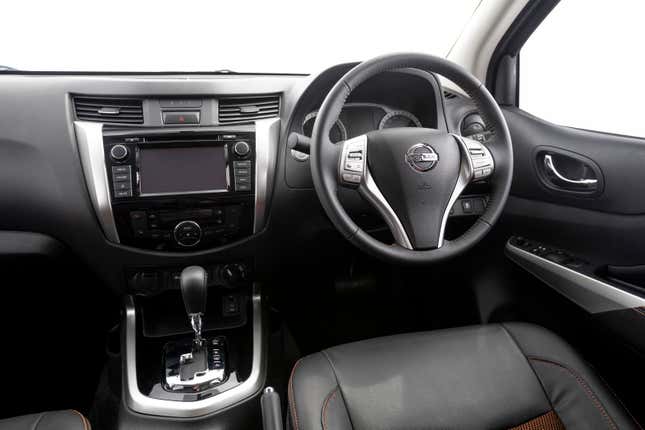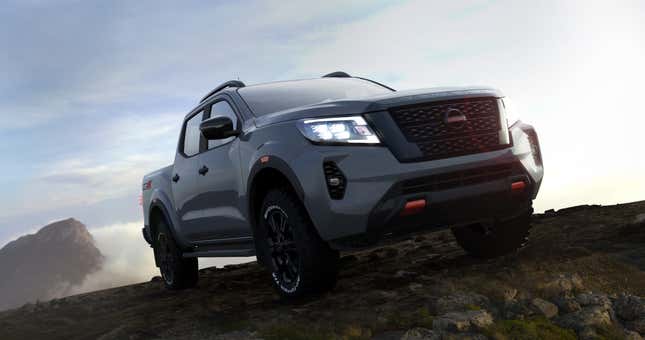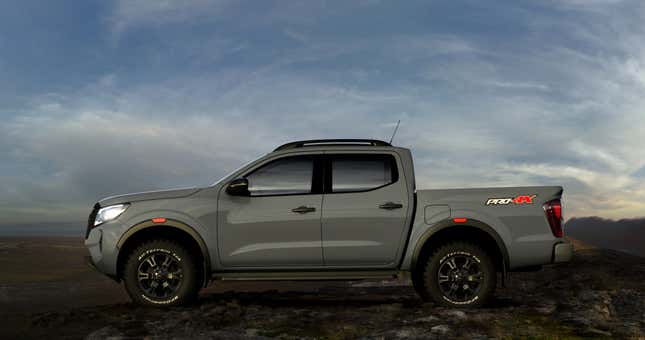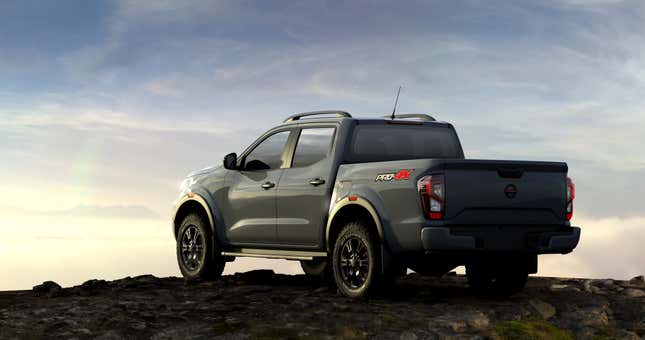The Nissan Navara Was The Overdue Frontier We Deserved A Decade Ago

Nissan gets dunked on for letting models like the Frontier languish for years. But, the truck saw a model update well before the release of the 2022 Frontier, which is mechanically much like an old Frontier with a new design. Outside of the U.S., the successor to the second-generation Frontier came in 2014 with the NP300 or Navara, which was deemed too small to succeed in the American market.
Nissan Finally Turns a Profit
Production of the Nissan Navara has been ongoing since the mid-2010s outside of the U.S., in Latin America and Southeast Asia, where the little pickup has enjoyed moderate success. I say “little” because the pickup is within size thresholds that truck fans in the U.S. allegedly don’t want, so Nissan opted to keep selling the previous Frontier (D40) with design changes in the U.S.
That’s where the reputation for the old Frontier comes from; by the time Nissan addressed the issue last year, the second-generation Frontier had a production run of 17 years. But, again, that applies only in America, where Nissan chose to bide its time after transitioning the Frontier from a compact to midsize truck.
Photo: Nissan
In many places, the Nissan Navara or NP300 held on to the same evolutionary branch as the Hardbody and first-generation Frontier. It remained a small truck, only getting bigger according to cab configuration. Kind of like the Ford Ranger SuperCrew.
The Nissan Navara is available as a King and Crew cab, which corresponds to an extended or double cab, respectively. Of course, there are also single and chassis cab trucks for commercial buyers. The engine configurations of the most recent models include a gas-burning 2.5-liter inline four, as well as a 2.3-liter turbodiesel. A six-speed manual transmission is standard equipment, while a seven-speed auto was optional. And buyers can choose either 4WD or 2WD. The interior is a little too fifth-gen Nissan Altima for me, but it’s serviceable.

Photo: Nissan
And so are the truck’s test crash results, contrary to the popular belief that small trucks sold abroad are unsafe. Hell, the Navara even served as the basis for a Mercedes-Benz pickup, which is so awesome we’ll leave it for another post.
Mostly, I dig the truck because it clung to its roots as a compact like the beloved Nissan Hardbody. The Navara would still be considered compact by U.S. standards, even as recently as 2020 when it got a facelift and leaned into the off-roading fad.

Photo: Nissan
Think of the Nissan Navara as the Toyota Hilux or Chevy S10, which are still sold in emerging markets where many folks are reluctant to buy full-size trucks due to practicality. A lot of the time, the issue is price, too. Carmakers can’t milk some markets for big profits if most people can’t afford full-size trucks to begin with. And slowly increasing the size and cost of compacts might prove unwise.
It’s interesting that these markets are importing truck models built in the U.S., which are bigger than traditional midsizers and closer to old full-size trucks. In Mexico, the only way to get a new Frontier with a V6 is to buy the big new truck, which went in another direction than the Navara. Maybe that varied approach would be nice in the U.S., where the only options seem to be big or bigger, but it’s unlikely as long as automakers insist on pushing the size and sales envelope.

Photo: Nissan

Photo: Nissan



